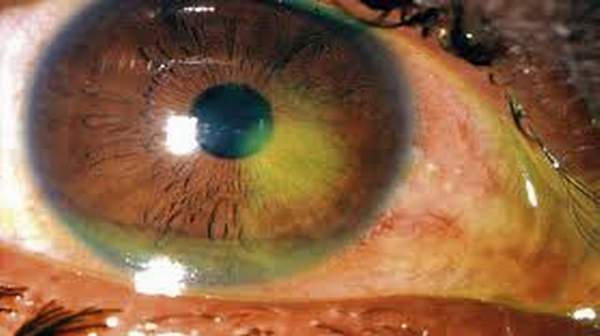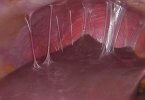
What's in this article?
A corneal abrasion is a scratch on the eye’s cornea. The cornea is the clear, protective lens that (like a car windshield) is in front of the iris, which is the colored part of the eye, and the pupil the black circle in the middle of the eye.
It’s important both for vision and for protecting the eye. If you poke your eye or if something gets trapped under your eyelid such as dirt or sand your cornea may become scratched. When it does, it can cause significant pain and discomfort.
If you get something in your eye, do not rub it. Try flushing it out with water or seek help from a doctor.
What Causes Corneal Abrasions?
There are countless ways to get a corneal abrasion. No matter how big or small, anything that makes contact with the surface of your eye can cause injury.
Tree branches, paper, makeup brushes, a pet, a finger, workplace debris, sports equipment and more all pose a danger to the front surface of your eyes.
Many corneal abrasions aren’t caused by a noticeable traumatic event, such as getting poked in the eye. Sand, dust and other small particles can cause a corneal abrasion as well, especially if you rub your eyes.
Contact lenses usually won’t protect your eyes from corneal abrasions. In fact, if your contacts are damaged or you wear them too long, they may even increase your risk of a scratched cornea.
Corneal Abrasion Symptoms
You should suspect a corneal abrasion if you have sustained an injury to your eye. The following are some of the symptoms you may experience:
- A sensation of a foreign body in the eye (for example, a feeling that there is something in your eye that you cannot get out). This feeling sometimes develops a few hours later rather than immediately after the apparent injury.
- Corneal abrasions, except in cases of chemical or ultraviolet light burns, usually affect only one eye.
- Tearing of the eyes
- Blurred vision or distortion of vision
- Eye pain when exposed to a bright light
- Spasm of the muscles surrounding your eye causing you to squint
Why are corneal abrasions so painful?
The cornea has many nerve cells that transmit pain. These cells help us recognize that something foreign is in the eye before it damages the surface of the eye. Unfortunately they also make having a corneal abrasion a very painful experience.
Corneal Abrasion Diagnosis
If you have any of the symptoms of a corneal abrasion, you should seek care from your ophthalmologist (Eye M.D.). He or she will perform a thorough eye examination. During the examination, your Eye M.D. may put numbing drops in your eye so that it can stay open for the examination.
To accurately diagnose a corneal abrasion, your Eye M.D. may perform a fluorescein eye stain. This is a test that uses orange dye (fluorescein) and a blue light to detect damage to the cornea.
When Something Gets in Your Eye
Often, the first reaction to something getting in your eye is to want to rub it. But don’t — rubbing can cause an abrasion. Here are some safer ways to try to remove foreign matter from your eye:
- Blink your eye several times.
- Pull your upper eyelid over the lower eyelid.
- Gently rinse your eye out with clean water or a sterile saline solution. But do not rub the eye while rinsing it.
And do not try to remove anything that is on the cornea. Only a doctor should do this.
If you still feel like something is caught in your eye, see an eye doctor as soon as possible, or go to the emergency room. The eye doctor will examine the eye and use a special eye stain to better see the surface of the cornea. If something is on the cornea, the doctor can safely remove it.
Corneal Abrasion Treatment
Antibiotic eye drops or ointment may be recommended to prevent an infection in cases of corneal abrasion. Medicated eye drops to ease pain and inflammation may also be used.
Sometimes, doctors temporarily patch the scratched eye. Pain medication may also be given.
A minor scratch should heal on its own in one to three days. More severe abrasions may take longer to heal.
Here are some tips to help you while your eye heals:
- Do not wear contacts until your eye has completely healed and your eye doctor says it is safe to do so.
- Wear sunglasses to help ease pain caused by the glare of the sun.
- Do not rub your eye.
Most people fully recover from minor corneal abrasions without permanent eye damage. However, deeper scratches can cause corneal infections, cornea erosion, or scarring of the cornea. If not treated properly, these complications can result in long-term vision problems. Any unusual symptoms, including a recurrence of pain following healing, should be reported to your eye doctor.






Leave a Comment